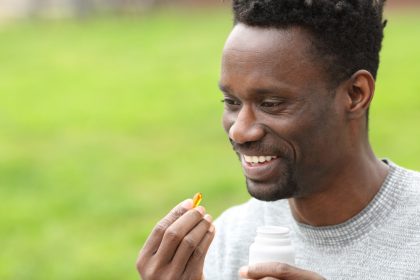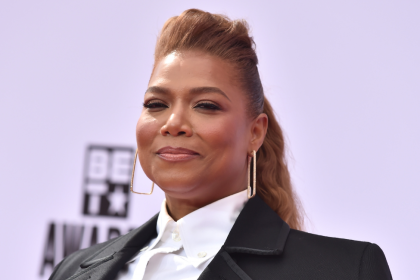
We’ve all heard the mantra “the darker the berry, the sweeter the juice.” And it is common knowledge that melanin protects darker skin from the ravages of premature aging and too much exposure to ultraviolet sunrays. But having more melanin also helps to increase the prospect of attracting other diseases and ailments, physicians and researchers have concluded.
The body produces vitamin D naturally when it is exposed to the sun’s UV rays, which helps to keep the bones strong. But since melanin happens to block UV rays, it also inhibits vitamin D production in the body, says Dr. Valerie D. Callender, an associate professor of dermatology at Howard University.
Researchers state in several studies that this is why anywhere from 36 to 97 percent of African Americans have low levels of vitamin D. Couple this with poor dietary intake of vitamin D from dairy, given the prevalence of lactose-intolerance in the black community, and it explains why blacks have higher cases of brittle bones, rickets and osteoporosis during their advanced years.
But it doesn’t stop there. New research reveals a link between the more common type of breast cancer in African American women, triple-negative breast cancer, and low vitamin D levels.
A 2008 study tied low vitamin D levels to an overall increased chance of early death.
“Vitamin D levels in the blood are associated with prostate, colon and breast cancer,” says Dr. Rick Kittles, director of the Institute of Human Genetics at the University of Illinois at Chicago. “But, we don’t know the mechanism.”
A recent study of 89 New York Giants players showed that players with lower vitamin D levels were more likely to be injured. Over 90 percent of the African American players were vitamin D deficient, with levels lower than white players who were also deficient.
The body also leverages the benefits of vitamin D for important daily functions. The immune system needs the nutrient that vitamin D provides to fight bacteria and viruses. Nerves also need it to effectively carry messages between the brain and the rest of the body. Without vitamin D, the body cannot absorb calcium, researchers state.
Latrice Landry, a researcher at Tufts University’s Friedman School of Nutrition Science and Policy, says UV absorption is different for blacks and whites.
“Though someone with pale skin can get adequate vitamin D by exposing their arms and legs to the sun for 10 to 15 minutes twice a week in the summer, someone with the darkest skin might need two hours of exposure each time,” she says.
While sunscreen blocks some UV rays, skipping sunscreen to boost vitamin D production is not advised given the well-proven risk of skin cancer.
“For optimal health, I would recommend a vitamin D supplement, especially for anyone, not just African Americans, living in cold climates,” Landry adds. “Other suggestions are to eat foods fortified with vitamin D.”
What are the best foods to receive natural vitamin D besides UV rays? Fatty fish like salmon and tuna are the best dietary forms. Milk is fortified with vitamin D, but many blacks have trouble digesting it properly. Be advised that products made from milk, like cheese and ice cream, do not have vitamin D properties in them. Other foods have vitamin D artificially added like certain cereals and orange juice.
–terry shropshire
















